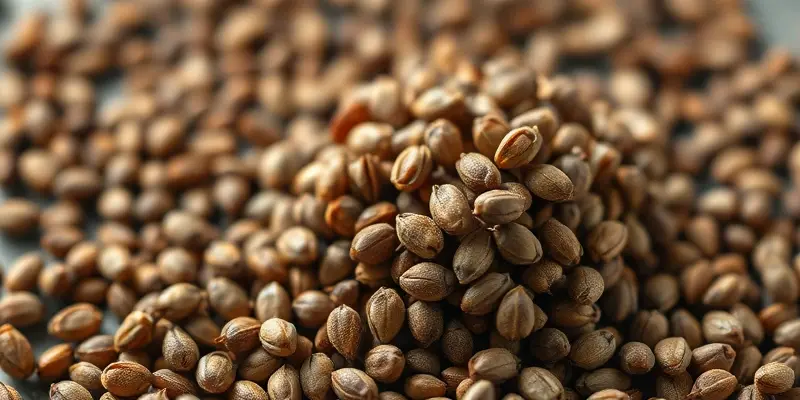Recovery is the secret weapon behind every training session, game day, or fitness milestone. Whether you’re a dedicated athlete or just starting your wellness journey, bouncing back from tough workouts and preventing injuries is a universal goal. Lately, chia seeds have been making waves as a “superfood” for recovery—but how much of the hype is backed by science? Let’s dig into the real story and help you build smarter habits for your recovery routine.
What Are Chia Seeds and Why Do Athletes Use Them?
Chia seeds are tiny black seeds from the Salvia hispanica plant, native to Central America. Far beyond being a “trendy” add-on to smoothies, they’re nutritional powerhouses packed with plant-based protein, fiber, antioxidants, and omega-3 fatty acids.
So, why do athletes and fitness enthusiasts swear by them? Here’s why chia seeds are capturing attention in the gym and on the track:
- Nutrient Density: Just two tablespoons serve up about 4 grams of protein, 10 grams of fiber, and a healthy dose of minerals like magnesium, calcium, and potassium.
- Plant-Based Recovery: They offer all the essential amino acids needed for muscle repair—and they’re vegan-friendly.
- Convenience: Mix them into overnight oats, shakes, or sprinkle on yogurt for a quick, portable boost.
Chia Seeds for Recovery: Science-Backed Benefits
Let’s break down how chia seeds support recovery and overall athlete health:
Sustained Energy and Hydration
Unlike simple carbs, chia seeds slow down how your body digests carbohydrates. This means you get a steady release of energy—perfect for long training sessions or competition days. When soaked, chia seeds can absorb up to 12 times their weight in water, forming a gel-like consistency. This helps support hydration during long workouts, much like a natural sports drink.
Example: Some ultra-endurance runners mix soaked chia (sometimes called “chia fresca”) before races to help maintain stamina and reduce the risk of mid-race “crashes.”
Muscle Recovery and Anti-Inflammatory Support
Chia seeds deliver plant-based protein and all nine essential amino acids—which is crucial for muscle repair and growth after exercise. Their high content of omega-3 fatty acids (ALA) also provides a natural anti-inflammatory benefit. Inflammation is a major culprit in muscle soreness and overuse injuries, so anything that helps you manage it gives you a recovery edge. For more strategies on injury management, check out our injury recovery checklist.
Digestive and Gut Health
Thanks to their rich fiber content, chia seeds can help regulate digestion and improve nutrient absorption—a win for consistent training. However, if you’re new to high-fiber foods, start slow to prevent digestive discomfort.
Do Chia Seeds Improve Performance? Myths vs. Evidence
This might surprise you: while chia seeds have impressive nutritional credentials, studies show they don’t directly enhance athletic performance compared to traditional carb sources.
- Scientific Evidence: Research indicates that swapping out part of your usual carb load (like a sports drink) for chia seeds maintains, but does not improve, endurance or speed. Muscles rely mainly on fast-burning carbs during high-intensity exercise—not the fats from chia’s omega-3s.
- Real Takeaway: Chia seeds are not a miracle pre-workout fuel but can play a useful role in overall nutrition for recovery and injury prevention.
How to Add Chia Seeds to Your Recovery Routine
Ready to give chia seeds a try? Here’s how to integrate them safely and effectively:
- Start Small: Begin with 1 tablespoon per day to let your digestion adjust.
- Best Timing: Add them to breakfast or a post-workout snack—think chia pudding, oatmeal, or blended into smoothies.
- Stay Hydrated: When using dry seeds, mix with plenty of liquid to avoid digestive upset.
- Simple Recipe: Mix 2 tablespoons of chia seeds with 1 cup of your favorite milk. Soak for 10 minutes or overnight—top with berries and nuts for a recovery super-snack.
Who should be cautious? Anyone new to high-fiber foods, or those with digestive issues, should introduce chia gradually. Always consult your healthcare provider if you have specific dietary concerns.
The Final Word: Are Chia Seeds Worth Adding to Your Recovery Plan?
Chia seeds are a smart addition to an athlete’s recovery toolkit, thanks to their plant-based protein, fiber, omega-3s, and hydration support. Science doesn’t support claims of miraculous performance boosts—but their real value lies in injury prevention, muscle repair, and sustainable energy.
Remember, there are no “magic foods.” For the best results, combine chia seeds with a balanced diet, good sleep, and smart recovery habits. Stay motivated, keep learning, and give your body the well-rounded care it deserves—chia seeds and all!
Need more nutrition tips or recovery guidance? The Gympulse Club is here to help you achieve your next fitness breakthrough, injury-free.

